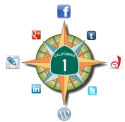 Over the weekend, I had the occasion to get into a… discussion… on a post from a Facebook friend. During this… discussion… I was chastised for not being aware of all the context from previous posts by this friend on the subject. Another person commenting on the same post was chastised for intruding on a safe space in a problematic way, and a friend of mine was chastised for chiming in. Thinking back on this, I think the following reminders should be made:
Over the weekend, I had the occasion to get into a… discussion… on a post from a Facebook friend. During this… discussion… I was chastised for not being aware of all the context from previous posts by this friend on the subject. Another person commenting on the same post was chastised for intruding on a safe space in a problematic way, and a friend of mine was chastised for chiming in. Thinking back on this, I think the following reminders should be made:
- Facebook is not a safe space, even if your post is “friends only”. Often, although the post might be friends only, Facebook makes the response visible transitively to friends of friends, meaning your post may inadvertently have a much wider audience than you expect.
- Facebook does not present all past posts, and not always in sequential order. You cannot assume that anyone commenting on your post has any context at all. Whether they have seen your past posts depends not only on whether they have settings to show “most recent posts”, but how popular your posts are, how often they read your and linger on your posts, and many algorithmic factors.
The upshot to this is that you should not assume anything on Facebook is safe or private, and particularly, you cannot assume that your wall and your posts are safe spaces. Similar warnings apply to venues such as Tumblr and Twitter, where again you can’t always control who sees what you write. Warnings also apply to traditional Blogging, such as WordPress sites, where you can only restrict things through password protected posts.
If you want truly safe spaces, you should go “old school”. I’m not referring to pen and paper, although that can be safer. I’m referring to venues from the last decade, such as Livejournal and Dreamwidth, where you can restrict journals to friends or a subset of friends, where transitive accessibility is limited, and where you can have assurance that all posts are shown in sequential order. Further, on services such as Livejournal/Dreamwidth, you can have sticky warnings and FAQs at the top of your journal, and links to your rules. That’s difficult in Facebook — even if you do a group (where you can have a sticky post at the top), people reading on their wall may not see it.
Remember: the Internet, and especially social media, was not designed with privacy in mind. Especially if you are getting a service for free, you are often the product that is being sold, not the customer. It was also not designed to protect you — especially if you are sensitive to slights (intentional or otherwise), not everyone may know your warnings, and not everyone may be protected from posting. No where is that truer than Facebook or on Google, where everything you write is scanned for advertising potential, and it is easy to not see everything.


 Some passings (or soon to be passings) from the last week that are worthy of note:
Some passings (or soon to be passings) from the last week that are worthy of note: I’m still working on clearing out the links that accumulated during
I’m still working on clearing out the links that accumulated during  This has been a busy weekend, what with theater, working on the highway pages, cleaning the house, and
This has been a busy weekend, what with theater, working on the highway pages, cleaning the house, and  It’s been a busy week both at work and at home. Articles have been accumulating, but there are a few theme groupings to get out of the way before we get into the stew. So, for an appetizer, here’s a collection of interesting articles dealing with computer related news chum:
It’s been a busy week both at work and at home. Articles have been accumulating, but there are a few theme groupings to get out of the way before we get into the stew. So, for an appetizer, here’s a collection of interesting articles dealing with computer related news chum: Reading the news over lunch the last few days has been very upsetting. I’ve read articles about trophy game in Africa, potential underage sex, anti-abortion activists, and much more. What has been upsetting me most, however, is not the ostensible subjects of the articles — the killing of animals, the sex, and such. What is upsetting me — and what is prompting me to climb up on my soapbox and write this article over lunch — is the way that the Internet is turning people into cyberbullies, cybervigilantes, and cybermobs.
Reading the news over lunch the last few days has been very upsetting. I’ve read articles about trophy game in Africa, potential underage sex, anti-abortion activists, and much more. What has been upsetting me most, however, is not the ostensible subjects of the articles — the killing of animals, the sex, and such. What is upsetting me — and what is prompting me to climb up on my soapbox and write this article over lunch — is the way that the Internet is turning people into cyberbullies, cybervigilantes, and cybermobs.